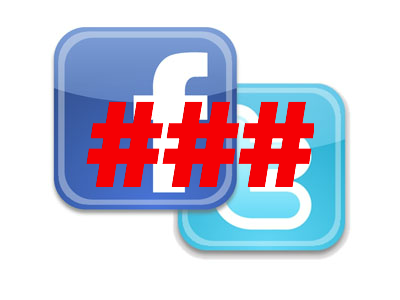Until late June, hashtags on Facebook were little more than a way for posters to their inner thoughts. A Facebook hashtag seemed like little more than an indulgence, a kind of commentary used as a way to explain what was really behind why was being posted. But now that’s changed.
In late June, Facebook amped up hashtags making them clickable. A hashtag organizes a category, making it searchable. For insight into where Facebook might be going with hashtags, Twitter is the place to look. Hashtags for Twitter has become a major revenue generator. In 2014 eMarketer estimates that Twitter will generate more than $1 billion in revenue. The model for monetization for Twitter is of course advertising. Twitter’s success in this arena is by amplifying television.
The platform capitalizes on in the moment conversations that make use of real-time advertising. Twitter uses the cross platform approach to deliver enhanced content to hyper engaged viewers, delivering promoted tweets and often encourages them to tune in. Hashtags are becoming a staple in television advertising, driving viewers to conversations about what their viewing on Twitter.
I have used Facebook as a second screen option watching the Presidential debates and following real-time conversations with other viewers during Facebook events created by the networks. As a fuller social network than Twitter, the implications of hashtags may be broader on Facebook. I’m often amazed at Facebook’s ability to collect information about my preferences and serve up ads to me. By requiring
By creating in the moment conversations about issues, we may see movement on gun reform and a significant call to action. Maybe Gabby Giffords chatting in a Facebook event employing targeted hashtags while the parents of Sandy Hook victims face-off with the NRA on CNN could force a vote in Congress that could make a difference.

